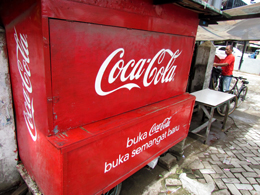Believers living under the crescent of Islam are often seen,
like the bees, as unwanted pests to be removed. Because of this, believers try
to stay out of sight. They certainly don’t want high visibility for fear of
negative reactions from their neighbors. Unfortunately, many believers allow
this fear of community reaction to keep them from sharing the Gospel. If all the
peoples on Sumatra are ever going to be reached with the Gospel, believers need
to overcome their fears and get busy like bees!
The Words of God are sweeter than honey. Pray that all the peoples on Sumatra
will be able to hear God’s Word.
The Gospel is Good News that transforms lives. Pray that the Gospel will become like a
buzz in the air that reaches every corner of Sumatra.
God’s plan for the Gospel to go forth is for believers to be
bold witnesses. Pray for the Holy
Spirit to stir up believers on Sumatra to go forth in boldness to proclaim the
Good News. Pray for training that
will equip believers to share in a way that is effective and culturally
sensitive.





































